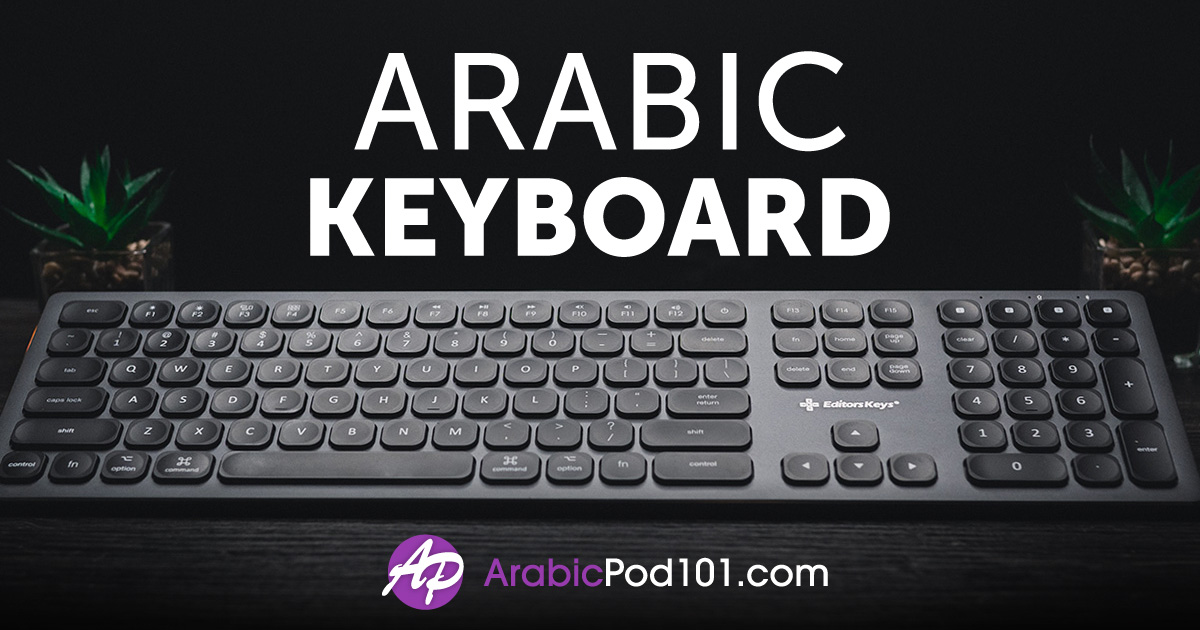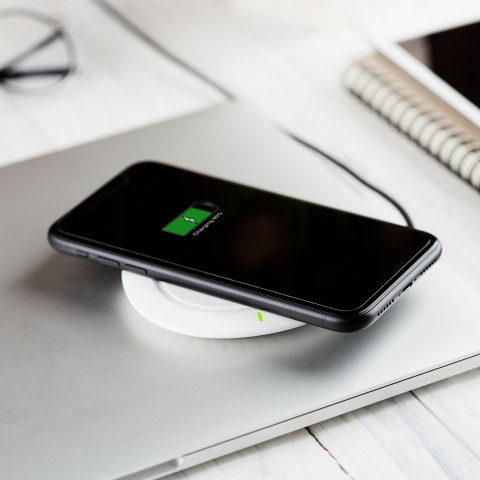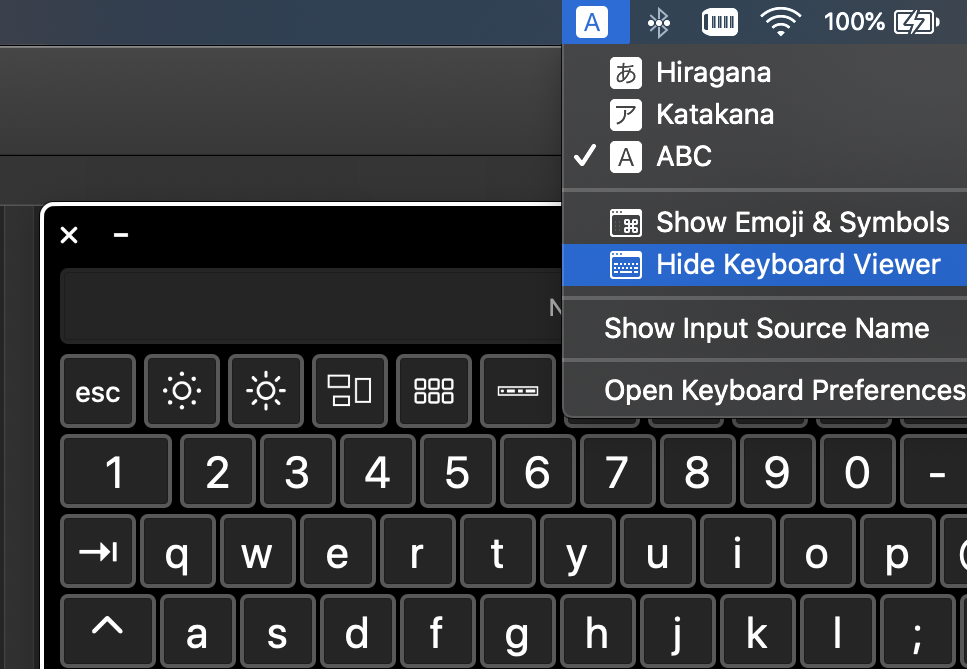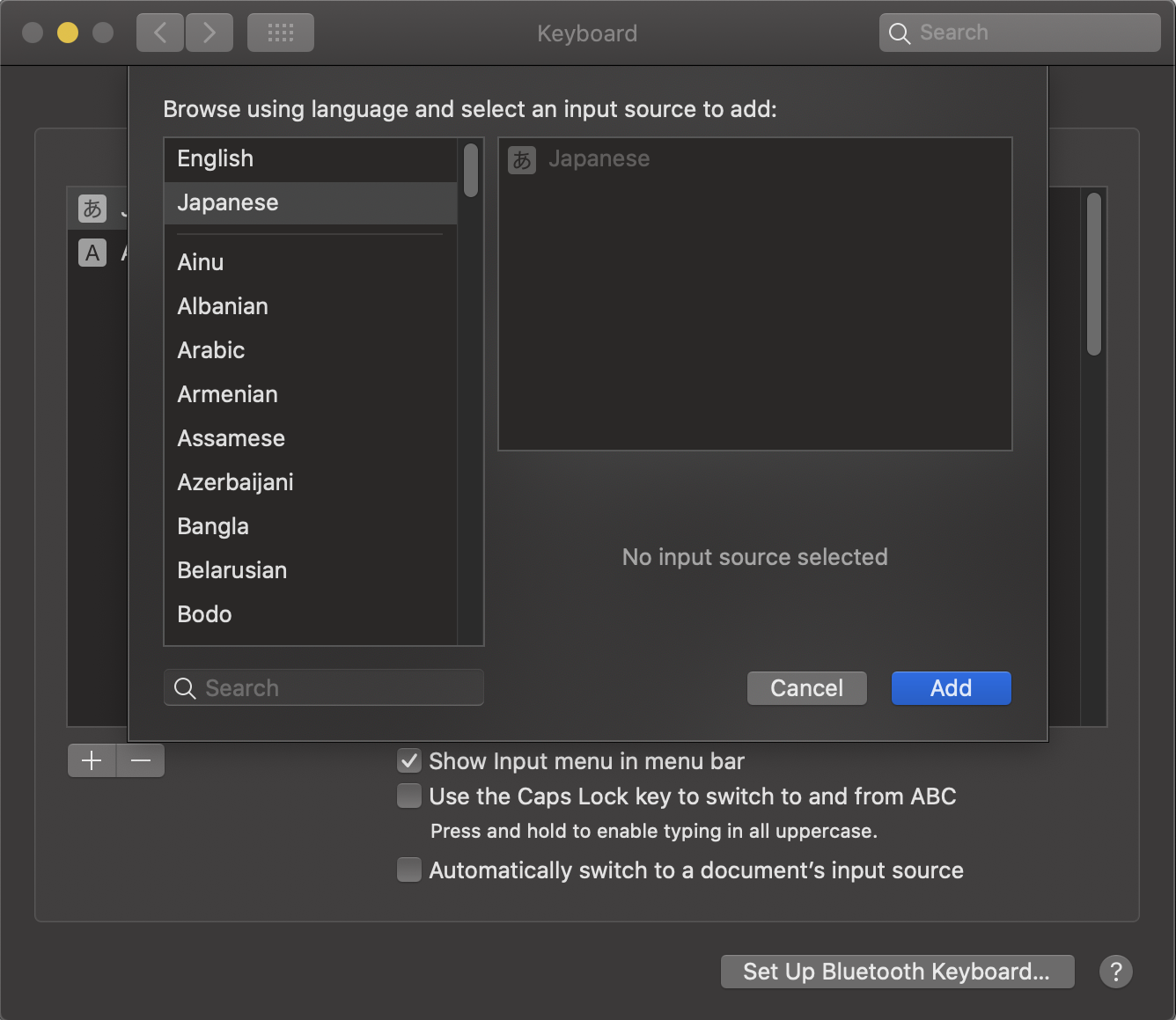
You asked, so we provided—easy-to-follow instructions on how to set up your electronic devices to write in Arabic! We’ll also give you a few excellent tips on how to use this keyboard, as well as some online and app alternatives if you prefer not to set up a Arabic keyboard.
 Table of Contents
Table of Contents- Why it’s Important to Learn to Type in Arabic
- Setting up Your Computer and Mobile Devices for Arabic
- How to Activate an Onscreen Keyboard on Your Computer
- How to Change the Language Settings to Arabic on Your Computer
- Activating the Arabic Keyboard on Your Mobile Phone and Tablet
- Arabic Keyboard Typing Tips
- How to Practice Typing Arabic
1. Why it’s Important to Learn to Type in Arabic

Learning a new language is made so much easier when you’re able to read and write/type it. This way, you will:
- Get the most out of any dictionary and Arabic language apps on your devices
- Expand your ability to find Arabic websites and use the various search engines
- Be able to communicate much better online with your Arabic teachers and friends, and look super cool in the process!
2. Setting up Your Computer and Mobile Devices for Arabic

It takes only a few steps to set up any of your devices to read and type in Arabic. It’s super-easy on your mobile phone and tablet, and a simple process on your computer.
On your computer, you’ll first activate the onscreen keyboard to work with. You’ll only be using your mouse or touchpad/pointer for this keyboard. Then, you’ll need to change the language setting to Arabic, so all text will appear in Arabic. You could also opt to use online keyboards instead. Read on for the links!
On your mobile devices, it’s even easier—you only have to change the keyboard. We also provide a few alternatives in the form of online keyboards and downloadable apps.
3. How to Activate an Onscreen Keyboard on Your Computer
1- Mac
1. Go to System Preferences > Keyboard.
2. Check the option “Show Keyboard & Character Viewers in Menu Bar.”
3. You’ll see a new icon on the right side of the main bar; click on it and select “Show Keyboard Viewer.”

2- Windows
1. Go to Start > Settings > Easy Access > Keyboard.
2. Turn on the option for “Onscreen Keyboard.”
3- Online Keyboards
If you don’t want to activate your computer’s onscreen keyboard, you also have the option to use online keyboards. Here are some good options:
4- Add-ons of Extensions for Browsers
Instead of an online keyboard, you could also choose to download a Google extension to your browser for a language input tool. The Google Input Tools extension allows users to use input tools in Chrome web pages, for example.
4. How to Change the Language Settings to Arabic on Your Computer

Now that you’re all set to work with an onscreen keyboard on your computer, it’s time to download the Arabic language pack for your operating system of choice:
- Windows 8 (and higher)
- Windows 7
- Mac (OS X and higher)
1- Windows 8 (and higher)
- Go to “Settings” > “Change PC Settings” > “Time & Language” > “Region & Language.”
- Click on “Add a Language” and select “Arabic.” Here you have multiple options of different countries. Choose “Arabic (Egypt)” unless you have a certain preference. This will add it to your list of languages. It will appear as “(العربية (مصر” or “Arabic (Egypt)” with the note “language pack available.”
- Click on “Arabic (Egypt)” > “Options” > “Download.” It’ll take a few minutes to download and install the language pack.
- As a keyboard layout, you’ll only need the one marked as “Arabic (101)” You can ignore other keyboard layouts.
2- Windows 7
- Go to “Start” > “Control Panel” > “Clock, Language, and Region.”
- On the “Region and Language” option, click on “Change Keyboards or Other Input Methods.”
- On the “Keyboards and Languages” tab, click on “Change Keyboards” > “Add” > “Arabic.”
- Expand the option of “Arabic” and then expand the option “Keyboard.” Select the keyboard layout marked as “Arabic.” You can ignore other keyboard layouts. Click “OK” and then “Apply.”
3- Mac (OS X and higher)
If you can’t see the language listed, please make sure to select the right option from System Preferences > Language and Region
1. From the Apple Menu (top left corner of the screen) go to System Preferences > Keyboard.
2. Click the Input Sources tab and a list of available keyboards and input methods will appear.
3. Click on the plus button, select “Arabic,” and add the “Arabic” keyboard.

5. Activating the Arabic Keyboard on Your Mobile Phone and Tablet
Texting and searching in Arabic will greatly help you master the language! Adding a Arabic keyboard on your mobile phone and/or tablet is super-easy.
You could also opt to download an app instead of adding a keyboard. Read on for our suggestions.
Below are the instructions for both iOS and Android mobile phones and tablets.
1- iOS
1. Go to Settings > General > Keyboard.
2. Tap “Keyboards” and then “Add New Keyboard.”
3. Select “Arabic” from the list.
4. When typing, you can switch between languages by tapping and holding on the icon to reveal the keyboard language menu.
2- Android
1. Go to Settings > General Management > Language and Input > On-screen Keyboard (or “Virtual Keyboard” on some devices) > Samsung Keyboard.
2. Tap “Language and Types” or “ + Select Input Languages” depending on the device and then “MANAGE INPUT LANGUAGES” if available.
3. Select “العربية – Arabic” from the list.
4. When typing, you can switch between languages by swiping the space bar.
3- Applications for Mobile Phones
If you don’t want to add a keyboard on your mobile phone or tablet, this is a good app to consider:
6. Arabic Keyboard Typing Tips
Typing in Arabic can be very challenging at first! Therefore, we added here a few useful tips to make it easier to use your Arabic keyboard.

1- Computer
- Pressing the shift button in combination with letters give you the variations of the letter.
- In some cases, it’s hard to predict which letter you’ll get when you combine shift with a letter. For example, the Y button, which in Arabic is the غ letter, produces a إ letter when pressed while holding down the shift button.
- Most vowels can be produced by pressing the letters on the left side of the keyboard while holding the shift button.
- Most people can’t find the ذ letter at first. It’s located to the left of number 1 and under the “Esc” button on most keyboards.
2- Mobile Phones
- Holding down certain buttons such as ا and ي gives you options to choose betwen variations of these letters.
- Don’t forget to type in spaces between words, or else words will connect the wrong way.
7. How to Practice Typing Arabic
As you probably know by now, learning Arabic is all about practice, practice, and more practice! Strengthen your Arabic typing skills by writing comments on any of our lesson pages, and our teacher will answer. If you’re a ArabicPod101 Premium PLUS member, you can directly text our teacher via the My Teacher app—use your Arabic keyboard to do this!










